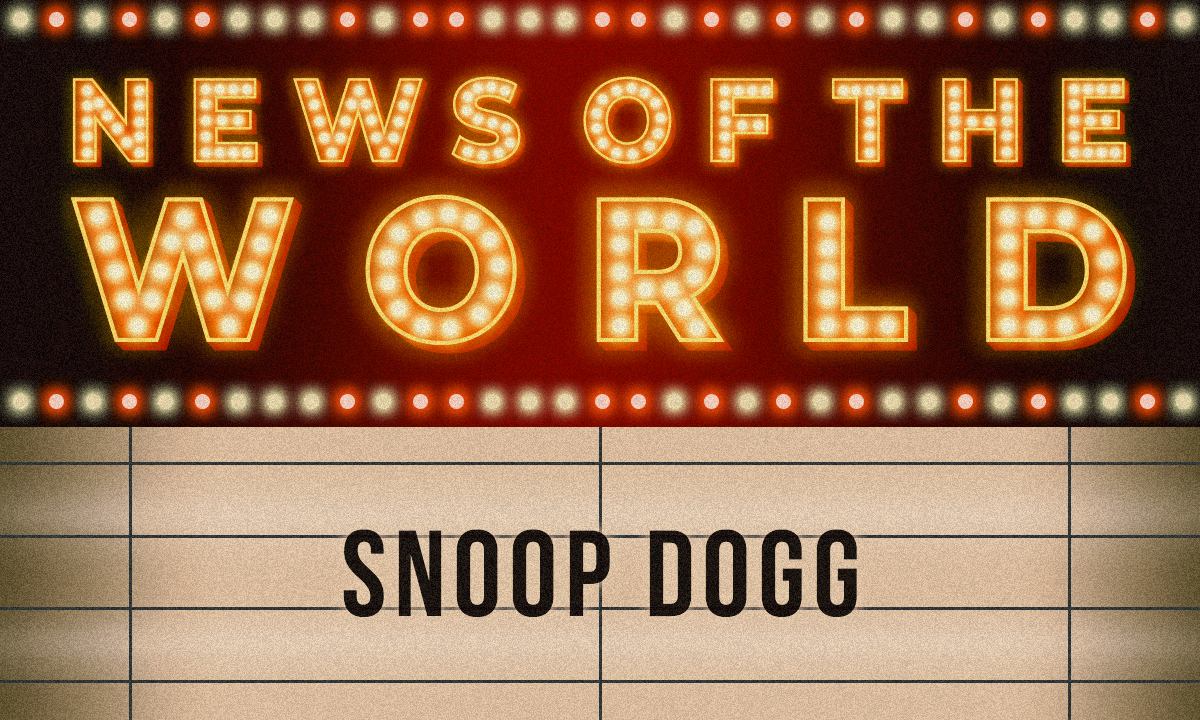
There was surprising news out of the hip hop world on February 9, just days before the Super Bowl LVI halftime show: Snoop Dogg had acquired Death Row Records. Seeing a rapper become head of a label isn’t typically headline news anymore, but this is a special case. Snoop was an early member of Death Row, which led the West Coast hip hop revival of the 1990s and heralded the golden age of gangsta rap. Back then he wasn’t Snoop Dogg but Snoop Doggy Dogg. He left the label in 1998, only to return now as CEO 24 whole years later.
Death Row had a phenomenal lineup in the ’90s. In addition to Snoop, key members included Dr. Dre, 2Pac, Tha Dogg Pound, Nate Dogg and others, with classics like The Chronic, Doggystyle and All Eyez on Me released in quick succession. It was one of the most powerfully influential labels of its time and a haven for the innovative G-funk genre. It’s no exaggeration to say the timeline of West Coast hip hop is divided between the time before and the time after Death Row came along.
But that massive ship, seemingly destined for smooth sailing forever, sank in a flash. The reign of the notorious Suge Knight, one of the label’s bosses, left it with a negative image, while Dre and Snoop’s departures and 2Pac’s tragic death were a chain reaction that rapidly diminished the label’s influence. It managed to maintain its reputation for a while, leaning on its former glory days, but eventually ran the risk of bankruptcy and in 2009 was acquired by WIDEawake Entertainment Group, which surely had many hip hop fans looking forward to a revival of the label. But there was no activity of note beyond a rerelease of its old catalog, including unreleased recordings.
Snoop cradled Death Row in his arms—existing now in name only—and worried it would disappear without a trace. For someone who once stormed out of the label that afforded him no respect over serious royalty issues, and planned an album called Fuck Death Row, how must it now feel to be at the helm of the company he’s had such a love-hate relationship with? Snoop said in an official statement that “it feels good to have ownership of the label I was part of at the beginning of my career and as one of the founding members.”
More than anything, his hopes are high and clear: not only to resurrect the symbolically and culturally significant Death Row Records, but also to also turn it into the very first NFT record label. Snoop says he’ll turn out artists through the metaverse using social media app Clubhouse and wants to be the first major label working in the metaverse, just like how Death Row reshuffled the industry as it went from an independent to a major label.
In fact, Snoop’s been making use of NFTs for a good year. He released an NFT collection revolving around his early years, including a piece called Snoop Dogge Coins and a song titled “NFT,” last March, and recently made his new album, BODR (Bacc on Death Row)—released in conjunction with his acquisition of the label—available on the blockchain. Snoop said that, even in the ever-evolving business of music, blockchain technology will change everything. He stressed how it has the power to turn negotiations in favor of the artists and their fans and that Death Row will be at the forefront.
It’s only been a few years since the music industry adopted NFT, and there’s still so much left to pioneer. That’s what makes it so difficult to predict whether Death Row can be restored to its former glory under new leadership and with an updated system. For hip hop fans who grew up listening to The Chronic and Doggystyle, Snoop’s ascension to the top of Death Row is as inspiring as it is meaningful. Snoop said as much himself: “This is an extremely meaningful moment for me.”
TRIVIA
Written to spite Suge Knight, Snoop Dogg’s 1998 album Fuck Death Row has never seen the light of day; Master P, the founder of No Limit Records, discouraged him from releasing it. In an August 2020 interview on hip hop radio show The Breakfast Club, Snoop revealed that Master P, with whose No Limit label Snoop had been in contract negotiations with at the time, advised the rapper not to release his album for fear of a backlash. The exec’s persuasion worked, and Snoop turned his gaze to work on a separate album. He thanked Master P for saving him with his cautious advice.
Unauthorized reproduction and distribution prohibited.

- [NoW] Hiatus Kaiyote2021.08.13

- [NoW] Lizzo’s “Rumors”2021.09.10

- [NoW] Fugees is back!2021.10.08




